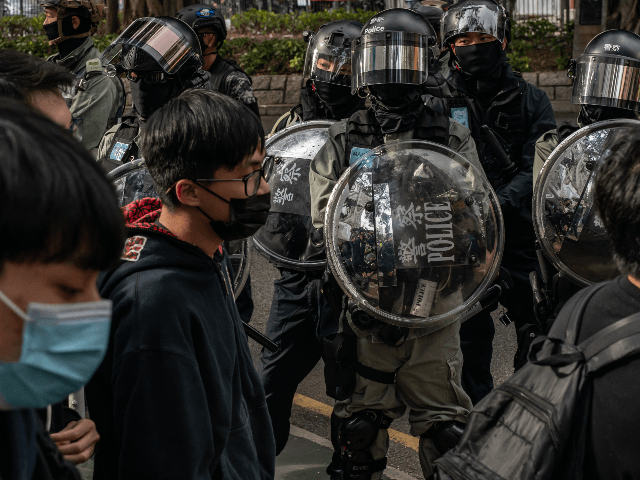Reuters on Friday reported on a poll that showed support growing for the pro-democracy protest movement in Hong Kong, even as the coronavirus epidemic makes it extremely difficult for them to hold protest rallies.
The poll upended expectations that the protest movement would sputter out during weeks of lockdowns. Instead, support for the movement grew and opposition diminished:
Demands for the resignation of Hong Kong’s leader, Carrie Lam, were supported by 63% of respondents in the poll, conducted by the Hong Kong Public Opinion Research Institute between March 17-20, versus 57% in a poll it conducted in December.
Supporters of the protests outnumbered opponents by a ratio of roughly two to one, with 28% against them compared with 30% in a poll in December, and 58% supporting them, versus 59% previously.
The poll showed a significant increase in the levels of support for key demands of the often-violent demonstrations which rattled the city for most of last year and into early January before the coronavirus crisis.
The survey also showed a widespread lack of confidence in the government’s coronavirus measures, with 54% expressing distrust and 33% giving the thumbs up.
Conversations with both pro- and anti-government citizens suggested the coronavirus pandemic has reinforced both of their worldviews. Those who support the Beijing-dominated administration of Carrie Lam think the coronavirus highlights the folly of destructive anti-government protests, while critics of Lam and China blame the mainland for setting the virus loose and credit Hong Kong’s people for the encouragingly low total of 450 coronavirus cases on the island, rather than the government.
“The results in combating the pandemic are because of the self-discipline of Hong Kong people. The government has nothing to do with it,” said one young poll respondent.
Perhaps for that reason, the poll found support for Hong Kong independence growing only slightly, but opposition to independence falling dramatically. Government officials in Hong Kong and Beijing are increasingly blamed for provoking the political crisis last year, rather than the protesters themselves.
On Thursday, Hong Kong police arrested pro-democracy politician Cheng Lai-king, invoking a colonial-era law to accuse him of sedition for writing a Facebook post identifying a police officer who injured an Indonesian journalist with a non-lethal projectile during a protest in September. The post was treated as “doxxing” and threatening the officer and his family.
“If this officer still has good conscience, please turn yourself in. An eye for an eye!” Cheng wrote in her post. The Indonesian journalist, Veby Mega Indah, was blinded in one eye by the projectile.
Cheng’s Democratic Party protested her arrest as “a flagrant act against freedom of speech with an intent to create a chilling effect in society.” Cheng has held a seat on Hong Kong’s Legislative Council since 1994 and became her party’s chairwoman after it won a landslide victory in last November’s elections.
Cheng’s arrest was denounced by Human Rights Watch (HRW) on Friday as the possible beginning of a new crackdown on the stubbornly popular pro-democracy movement.
“Arresting a pro-democracy politician for seeking police accountability is political persecution, not legitimate policing. Hong Kong authorities should immediately drop the case against councilor Cheng Lai-king,” said HRW’s China director Sophie Richardson.
As HRW pointed out, the injured journalist has been unable to file a case against the police officer who shot her in the eye because he was masked and displayed no identification number at the time of the incident. The Hong Kong police department refused to identify him despite numerous requests. His identity was disclosed by private citizens using the encrypted messaging system Telegram on Tuesday, after which Cheng reposted the information with her plea for the officer to turn himself in.
“Hong Kong police and other authorities don’t help their credibility by cracking down on peaceful criticism. Instead of pursuing dubious prosecutions, they should allow an independent investigation of their own conduct during the protest movement,” Richardson said of Cheng’s arrest.

COMMENTS
Please let us know if you're having issues with commenting.